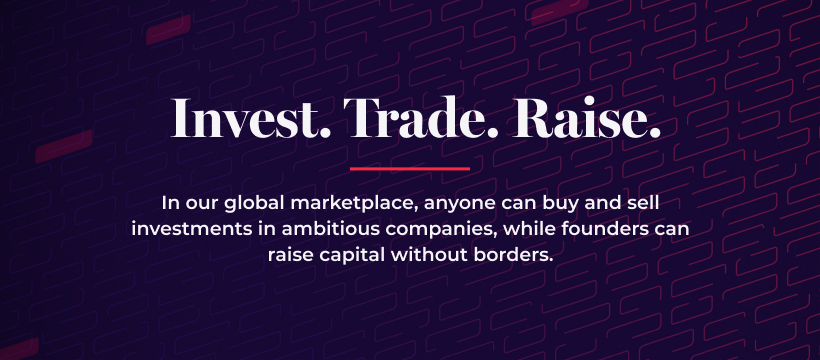Investor Spotlight – Madis Müür

In the Investor spotlight today is well known Estonian investor, Madis Müür. Madis is a professional poker player and since 2015, an active investor.
Madis has been a lead investor in 6 companies, an early-stage investor in 20+ companies, and was a winner of the Funderbeam 2021 Award “Most engaged Investor” with over 400 interactions on the Funderbeam platform.

Why do you invest in early-stage companies as an asset class? What is your motivation?
I’ve been investing for a lot of reasons, both financial and others. The asset class has
according to studies had returns of 22-27% in US and UK for early-stage angels which is of course very motivating.
In Estonia, the failure rate for start-ups that have raised €500k or more is
also surprisingly low and the success rate or rate of unicorns is pretty much the highest in the world together with Israel. I’ve done better than that and these have been very profitable investments on paper so far, I’ve beaten Nasdaq and most other indexes 5 of the last 6 years by a wide margin.
Then there’s the pleasure of helping to add well paid jobs, tax revenue and high value add
export revenue to the local economy to catch up with wealthy western countries. With start-ups giving options to employees it’s not just 1-3 founders who get wealthy when a company
succeeds but a lot wider range of people share the proceeds. Helping early stage tech
companies to grow is very interesting in itself. By definition already you’re doing something new every year. Helping the future to happen, sooner!
It used to be 10 and more years ago that tech used to grow only out of Silicon Valley so pretty much only US benefited from the first Internet revolution of 1995-2010. Amazon, Microsoft, Google, these giants are all based in California. Now it’s a lot wider area the new successes come from, even many of them from smaller countries.
Helping the world to become a better greener place and give my small effort to slow down climate change through investments into Greentech and micro mobility is also one of my passions and focus areas.
Are you more a trader or more an investor type? Why?
Even though I’ve been part of a day trading company more than a decade ago and with 15
years of experience in markets, I don’t trade much. With start-ups low liquidity it’s just not worth the time most of the time. Not worth the time to wait for opportunities. If one falls to my lap I probably take it but long positions for 5 and more years work great.
Makes much more sense to select great start-ups and hold them for 50-200x returns.
What are the three criteria by which you choose your investments?
Team, timing, and market/competition. The team is obviously the biggest criterion, by far the most important. Competition in European tech is also by now already very fierce and just good teams have a low probability for bigger international success.
Also when a company has decent traction at a small home market this by now shows very little if the big markets are already saturated with bigger better-funded competition. The company should be one of the first or at the right time or at least have a big enough edge over the competition.
Do you consider investing in companies with solo founders or only in companies with several Founders?
I haven’t come across a solo founder so far probably, not a serious startup at least. The team needs to have proven skillsets in critical areas and no one woman/man today is great both at executing the vision, building the tech, and selling it also. Maybe at the idea stage a repeat founder I’d consider and help him/her to build the team but he’d have to be willing to give away a significant amount of equity to other later co-founder level team members.
What are your priorities and why: team, product/idea, total market availability, timing?
As said, team.
Then after a wide margin timing/trends and market/competition. Idea or product or even business plan doesn’t matter much, this will inevitably have to change in most cases and great teams often enough find the way.
Sales channels, business models, customer types often change as the company learns more about its business and only the best teams are humble and able enough to learn from market feedback fast enough.
Does the company have to have a unique product to draw your attention?
Nope, they have to execute it very well. The product is under constant improvement and if the team isn’t embarrassed by MVP, they’re not shipping it early enough. They do need to work a lot with the customers though to get the product-market and product-sales fit in place.
Just executing the founder’s vision or business plan however good or unique it might be regardless of market feedback is the surest way to burning money irresponsibly. I’ve seen and felt that error several times in my portfolio, doesn’t work out.
Starting from which stage do you invest? Idea, MVP, pre-revenue etc
I’ve invested before MVP a few times and this has worked great for me with Ampler. A few years ago I looked for at least €5k MRR often but yeah home market revenue is usually meaningless by now.
Is it essential to motivate all employees by options in the company?
Works much better if they all have yes but at least the C-level team and key people definitely must have motivating equity. Just recently one of my new portfolio companies hired as Co-Founder a great C-level hire from another start-up that gave him too few options.
It is very competitive for top talent, not having enough option pool for them can break the company. On the other hand, if prior investors have been greedy and have taken over 25% equity it is often a pass, I don’t want to be the last smart money to come on board.
How many investments do you currently have? Can you name it?
About 10ish more meaningful positions, many of them on Funderbeam like Ampler, Silen, Promoty, Bikeep, UpSteam, Belief Water, Lexi Market, etc that I understand better sometimes help also and then about 15 smaller diversification bets. One needs to diversify also in this business just to be able to hit the bigger home runs.

What companies are on your watchlist now?
I’ve added a bit of Silen, Bikeep, Chaga, and Styledoubler recently that are growing very rapidly, also ÖÖD is a new position and seems very promising. Of course portfolio companies also, Ampler seems to be on the verge of a great year and will start building their e-bike Gigafactory soon.
What are the basic principles of how you manage your early-stage investments portfolio? (do you do follow on? When to exit, how much, etc)
No strict rules here, I’ve followed on occasionally. As it is a very winner-heavy asset class one might do well to add to some of its more promising portfolio companies and also give some a second chance.
About exits, I think long term. Cutting winners too early is one of the biggest mistakes in this game. If you sell something at 100% profit when it goes on to do 100x, that’s very bad. Sometimes when the growth curve is starting to slow I’ve also sold a bit of some positions but here it also gets tricky not to sell something that has a temporary setback or is due to factors outside the company’s control. The bigger company gets the slowed it grows after €10m revenue and that’s perfectly expected.
What are your biggest success stories and biggest failures?
By far biggest one is Ampler with over 50x from the first round and 15-16x from the second round. Cleveron has done well, I managed to sell a bit at 10x. Outside the platform Jeff App and Fractory are also among the best and on the platform, Xolo has brought over 5x and Silen is crushing it. Many are doing well or are starting to do well but haven’t moved in price yet for various reasons.
Overall I’ve probably written off about 30% of start-up investments and 15-20% of funds invested while overall still growing my portfolio by 8x in last 6 years. Considering I’ve lived off my returns for last 5 years and my portfolio is still 25%ish down from peak in last February, that 8x return is decent and still nicely ahead of stock market indexes. Well positioned to outperform in the future also.
The biggest failures have been Frank.ai and Eat Grim on the platform and several smaller ones outside. Frank didn’t get to good product-market fit and Eat Grim just had terrible advice on funding and ran out of funds when doing pretty decent growth, though slightly less than expected. That was completely out of the blue and unnecessary. So yeah the advisors need to be smart experienced investors as well, just passive money often enough isn’t enough.
What multiplier do you expect for your investment portfolio?
At current 8x so far in 6 years, I’ve been doing pretty ok overall. I have ambitious goals for future returns also, that’s why I’m in this asset class. For individual companies it may vary, I’m very much ok with a company with 10x potential at mediocre risk levels and also high risk going for 200x+.

What are your suggestions to investors who are thinking of starting early-stage investing? What to do, not to do?
Learn a lot and start small soon. It’s very much possible to start with €100 even per investment. Don’t put off starting, you just won’t be motivated often enough. Follow other successful investors at first definitely, smart advisors and investors have usually done their homework and are able to mentor the company. If it’s just a young team straight out of university and some friends or non-tech people as investors then it probably makes sense to stay out. The majority of investments fail still, especially with now the tougher competition.
Build a portfolio of at least 20-30 start-ups and give them 5 years or more to work their magic, to have the time to grow into international success stories. This is not a get-rich-quick scheme, this is a marathon. If one invests let’s say 10-20% of the portfolio into 20+ good start-ups it is very realistic to do well in this asset class.
Definitely know your risk tolerance, if losing money occasionally while the portfolio still grows isn’t for you and you might lose your sleep over it then it may make sense to look for returns elsewhere. Though failure rate overall with good selection seems to be similar to the stock market, there also 40% of companies lose money for investors long term. Best returns are where there’s some risk involved. Look at the big picture and overall growth of the portfolio companies, not just share prices.
What source of information do you recommend following for others interested in early-stage investing?
Investor and VC blogs, there’s great stuff on Twitter,
Saastr is great for various start-up topics, Sifted for tech news and opinions. Usually, you can learn a lot from founders who invest and their Twitter/blog as well, they know the stuff way better than most investors. Learn not from theory people but who have been crushing it for the last 5+ years. Advice older than that is usually outdated noise except for basic principles and investor psychology which are timeless.
Books also on various aspects of start-ups from finding product-market fit to sales, marketing, growth hacking, and customer success. Early-stage is so different world from stock market investing and one needs to forget a lot of the mature company stuff and relearn what is actually important here and how.
In Funderbeam’s tech-powered marketplace, anyone can buy and sell investments in ambitious companies, whilst founders can raise capital without borders.
Please click here to see companies currently raising funds with Funderbeam.
Looking to raise funds for your business? Let us help you.
* Capital at Risk


